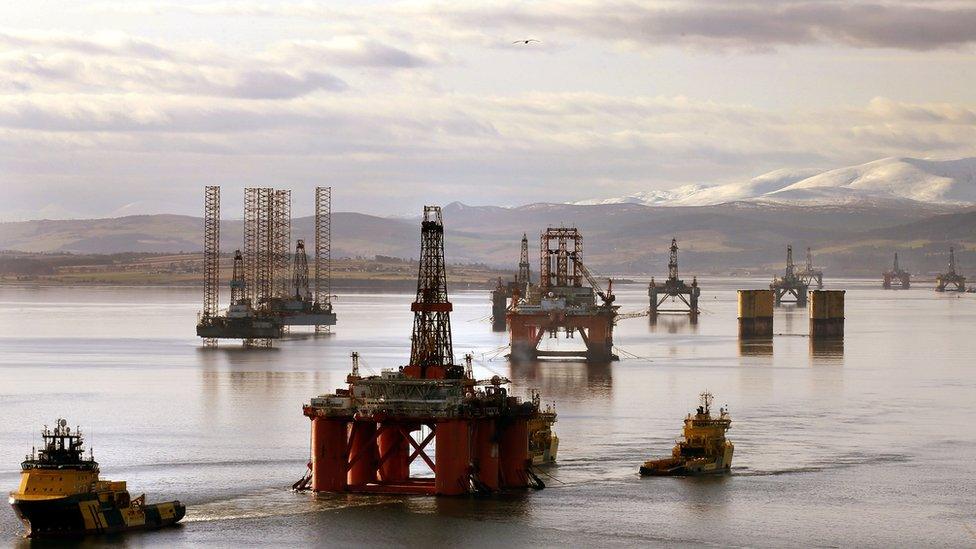Scottish economy growth 'failing to pick up' pace
- Published

The institute said the benefits of cheaper oil had not fed back into the economy strongly enough
Growth in the Scottish economy is failing to pick up pace, according to one of Scotland's main forecasters.
The Fraser of Allander Institute reckons that growth this year will be 1.9%, the same as its forecast for last year, for which official data has not been finalised.
That is a reduction on the 2.2% forecast for 2016 that it published in November.
For 2017, the forecast has fallen from 2.5% to 2.2% in those past four months.
The economists at the Strathclyde University institute warned that growth was too dependent on household spending based on credit, which they said was unsustainable.
They explained that the benefits of cheaper oil had not fed through to the economy as strongly as the harm it had done to the energy sector itself. The sustained low price was further pulling back on investment plans.
Referendum warning
The economists argued that this month's Westminster budget should avoid a further squeeze on spending, as tax revenues appeared to fall short of previous expectations.
Prof Brian Ashcroft, author of the regular Fraser of Allander reports, said that would slow growth further and worsen the flow of tax revenues to the exchequer.
The report said that job creation should continue but forecasted a slower rate of growth. The central forecast for net employment increase was 36,800, whereas in November, it was 45,000.
The report also warned of the effect of the UK being taken out of the European Union, following the referendum in June.
It claimed the uncertainty about the outcome of the vote would have a negative effect on investment.
Its analysis of the European choice was that "it is difficult to imagine that it would help improve Scotland's competitive position to our trade with the EU".

The report warns growth is too dependent on household spending based on credit
It noted that the fall in electronics and other manufacturing exports had meant Scotland already found it hard to penetrate open EU markets.
The Strathclyde report said Scottish exporters would find it more difficult if the trade arrangements were changed. Also, productivity could be slowed, when it was already relatively weak.
The latest report from Fraser of Allander noted that the Scottish economy still benefited from low inflation and low interest rates and earning power had been increasing slowly.
However, it reflected on the strength of Sterling, making imports cheaper and exports more difficult. That factor had weakened in recent weeks, though trade had been slowing globally.
Financial services
It said growth had been depending too much on rising and unsustainable household debt.
Paul Brewer, a senior partner at PwC which sponsors the Fraser of Allander reports, said: "The potential for the forthcoming budget to exert further fiscal tightening, oil price uncertainty and the uncertainty surrounding the potential outcome of the EU referendum, together create a difficult environment for business and investor confidence."
He suggested the UK Chancellor could help the economy with a further cut in tax on oil producers.
At sector level, the analysis said the service sector was the driver of growth, although financial services showed little sign of recovery to pre-recession levels.
The production sector had contracted in the most recent official data, and construction had ceased to be the driver that it was of Scottish growth.